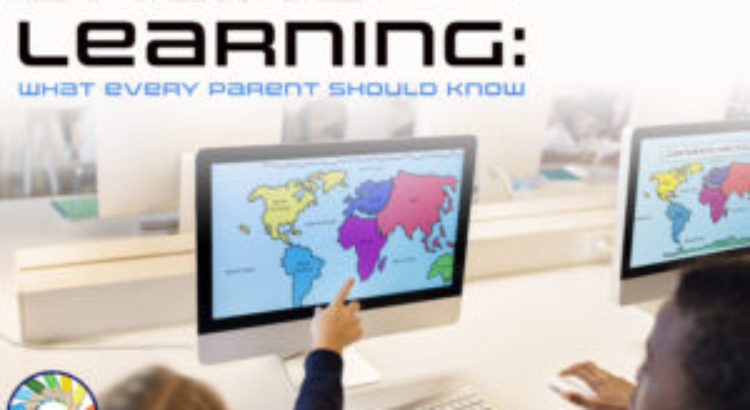Reseña: Usando tecnología para impartir instrucción en las escuelas se han vuelto cada vez más populares. Los estudiantes deben usar en línea programas, libros de texto y aplicaciones como parte de su trabajo de clase y tarea. BYOD (Traer su propio dispositivo) las políticas de la escuela han llenado las aulas y pasillos con estudiantes llevando teléfonos inteligentes, computadoras portátiles y iPads. En algunos estados, los estudiantes deben tomar al menos un curso en línea. En 36 estados, los estudiantes pueden asistir a un tiempo virtual, a tiempo completo escuela charter, nunca conociendo maestros o compañeros de clase cara a cara. La mayor dependencia de la tecnología en las escuelas se mueven a una velocidad vertiginosa uno que supera con creces la acumulación de investigación sobre su efectividad. ¿En línea? y el aprendizaje mixto mejora el estudiante ¿aprendizaje? ¿Qué sabemos acerca de la educación virtual ¿escuelas? ¿Cómo influye la política de beneficios? ¿qué decisiones hay sobre la tecnología de uso? Más allá de las cuestiones de efectividad, hay también preocupaciones de privacidad de los estudiantes. En línea el aprendizaje, en todas sus formas, captura una como tesoros los datos estudiantiles. ¿Quién es el dueño de los datos y para qué fines puede ser utilizado? ¿Puede venderse la información privada del estudiante con fines comerciales, con o sin ¿consentimiento paterno? Qué educativo las decisiones se están tomando para estudiantes basados en datos que pueden o no captar realmente su logro o habilidades? Estas son algunas de las grandes preguntas de nuestro informe el aprendizaje en línea: lo que todos los padres Deberían saber . A través de una extensa revisión de la literatura de investigación, nuestro informe proporciona información crítica sobre lo que se sabe y lo que permanece desconocido. También proporciona a los padres las preguntas que deben haceren su escuela sobre como la tecnología es usada en el aula
Introducción
Using technology to deliver instruction in schools has become increasingly popular. Students are required to use online programs, textbooks and apps as part of their classwork and homework. BYOD (Bring your own device) school policies have filled classrooms and hallways with students carrying smart phones, laptops and iPads. In some states students are required to take at least one online course. In 36 states, students may attend a virtual, full-time charter school, never meeting teachers or classmates face to face. The increased reliance on technology in schools is moving at a breakneck speed— one that far exceeds the accumulation of research on its effectiveness.
Does online and blended learning enhance student learning? What do we know about virtual schools? How does profit influence policy decisions on the use technology? Beyond questions of effectiveness, there are also student privacy concerns. Online learning, in all of its forms, captures a treasure trove of student data. Who owns the data and to what ends may it be used? Can private student information be sold for commercial purposes, with or without parental consent? What educational decisions are being made for students based on data that may or may not actually capture their achievement or abilities? These are some of the big questions our report Online Learning: What Every Parent Should Know answers. Through an extensive review of the research literature, thin as it may be, our report provides critical information on what is known and what remain unknown. It also provides parents with the questions they should ask their schools as technology is rolled into the classroom.
The Network for Public Education (NPE) is grateful to scholar Michael Barbour whose extensive knowledge of the research helped guide this report. We also wish to thank NPE Board member Leonie Haimson whose knowledge of the use of technology, blended learning, and concerns regarding student privacy provided invaluable input to this report. Ms. Haimson also serves as Co-Chair of the Coalition for Student Privacy. Carol Burris Thank you to NPE Communications Director, Darcie Cimarusti, for the design on this report and to Donna Roof, our copy editor. Finally, special thanks to the Board of Directors of the Network for Public Education, especially to President Diane Ravitch, and to all who financially support our efforts.
Editions: A Network for Public Education Report 2018
Donwload Online-Learning-What-Every-Parent-Should-Know (1)






 Users Today : 90
Users Today : 90 Total Users : 35459996
Total Users : 35459996 Views Today : 126
Views Today : 126 Total views : 3418591
Total views : 3418591